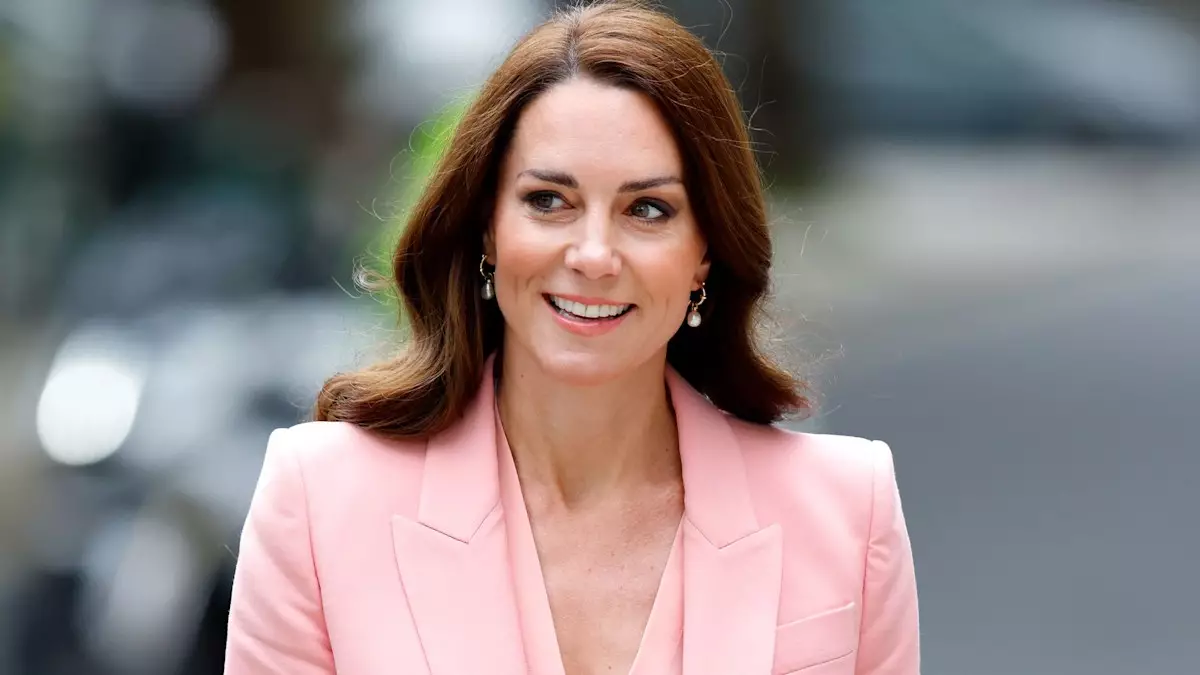The Princess of Wales, Kate Middleton, has emerged as a beacon of hope and innovation in the realm of early childhood development. Her commitment to reshaping how society supports parents and children has led to significant strides in this vital area, showcasing her leadership as both a royal and a passionate advocate. The launch of the Business Taskforce for Early Childhood in March 2023, initiated through the Royal Foundation, marks a pivotal moment in corporate engagement with parental support, encouraging businesses to invest in programs that strengthen familial bonds.
This initiative is not merely a response to societal pressures but a deeply rooted vision that recognizes the profound impact of early childhood experiences on long-term societal well-being and productivity. By galvanizing businesses, The Princess aims to foster a collective effort to nurture happier, healthier families that can contribute positively to the workforce. Unlike traditional approaches focused narrowly on immediate parental benefits, this program envisions a holistic strategy that strengthens communities by supporting families.
Corporate Responsibility and Grassroots Movements
The tangible outcomes from the Business Taskforce vividly illustrate the potential for impactful change when leaders from various sectors unite with a common purpose. A stellar example is provided by Deloitte UK, which has revamped its parental leave policies to offer all parents 26 weeks of fully-paid leave. This transformative step has received enthusiastic support from organizations like The Dad Shift, who have long campaigned for improved paternity leave standards in the UK.
Yet, while these progressive policies present a step forward, they also expose a stark inequality that pervades the business landscape. Most small enterprises remain unable to afford such enhancements, leaving many employees facing inadequate leave—often just two weeks at a fraction of the minimum wage, a situation that places new fathers and non-birthing parents at a disadvantage compared to their counterparts in Europe.
The outspoken co-founder of The Dad Shift, Alex Lloyd-Hunter, articulates the urgent need for governmental intervention. His call to action emphasizes that real societal change necessitates legislative enhancements to ensure equitable parental leave across all sectors—not just for those fortunate enough to be employed by forward-thinking companies.
A Collaborative Ecosystem for Change
The Business Taskforce is not working in isolation. It includes notable organizations such as Iceland Foods, Natwest Group, and IKEA UK and Ireland, each committed to enhancing childhood support through various initiatives. For instance, IKEA has undertaken partnerships with local baby banks, ensuring families have access to essential items. Meanwhile, Iceland has developed toddler meal ranges that generate funds for Alder Hey Hospital, showing how businesses can contribute to community health in multiple ways.
Further enhancing the educational landscape, the initiative has also sponsored over 1,300 early years teachers to gain advanced leadership qualifications through Teach First. This commitment to professional development is critical, as investing in quality educators is foundational for effective childhood programs—demonstrating a long-term investment strategy in human capital that could revitalize not only families but entire communities.
Shaping the Future: A Call to Action
The underlying message of the Business Taskforce’s findings is resounding: investing in early childhood stages could add an astonishing £45.5 billion to the UK’s national economy annually. Such projections reveal the transformative potential of a society that prioritizes the early years of development, framing it not merely as a cost but as a profound investment in future leaders, innovators, and contributors to society.
The Princess of Wales has clearly devoted a significant portion of her royal duties to advocating for early childhood, launching the Centre for Early Childhood in 2021 and spearheading the Shaping Us campaign, which emphasizes the crucial development period from pregnancy to age five. Her initiatives reflect a powerful ethos: that early childhood is not merely a formative phase but the bedrock upon which societal success is built.
In a world where the importance of parenting and childhood development is finally receiving the acknowledgment it deserves, Kate Middleton’s leadership sets a powerful precedent. Her call for a collective responsibility from both corporations and government is an inspiring reminder that change is possible—not just through noble intentions, but through actionable strategies that uplift entire communities and economic landscapes. The spotlight is now on policymakers to heed this call and catalyze significant reforms that ensure equitable and generous support for every family, creating a legacy of care and opportunity for generations to come.

